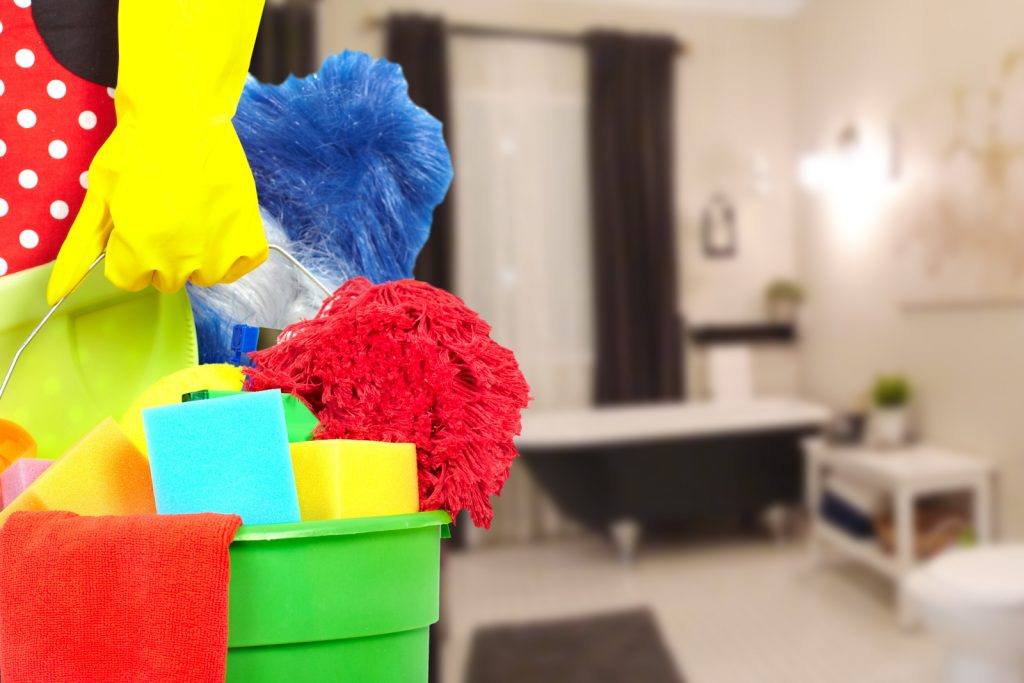Don't Become Obsessed With Cleaning

Are you a perfectionist? Do you spend too much time and effort trying to make your home impeccable? You might have a cleaning obsession. But how can you overcome it? Today, we have some tips that might help.
While having a clean home helps us feel our best and comfortable, some people take it too far and clean as if it were their job. Their obsession reaches a point where not cleaning every day makes them feel uncomfortable or uneasy.
You don’t have to give your home a deep clean every day and leave it spotless. Unfortunately, a lot of people feel the urge to do that and spend hours and hours cleaning.
Are obsessions disorders?
Obsessions can turn into a serious problem when they get out of hand. They can lead to compulsive actions, excessive focus on something in particular and dedicated long amounts of time to achieve the desired result.

Cleaning can trigger obsessive behavior when a person wants everything perfect every day. People who have an obsession and fail to meet their goals feel guilty and unaccomplished.
It can be difficult to treat an obsession. Obsessions can form in any sector of your life, not just cleaning. In many cases, people end up developing obsessive-compulsive disorder.
Preventing an obsession
If you miss one day of cleaning, everything will be fine. One day barely gives time for a mess to accumulate. Keeping a cleaning schedule is important but only if it doesn’t develop into an obsession. How can you prevent yourself from becoming obsessed?
- Do one simple household chore a day such as vacuuming. The next day, you can dust, and the next, mop the kitchen floor, etc. By keeping a one-chore-a-day limit, you can keep your home clean and a healthy mindset.
- Whenever you spill or stain something, clean it. Taking care of accidents right away will keep your home clean. Make sure you don’t pick up the habit of cleaning them up later or you’ll spend hours trying to remove what once was a simple fix.
- If you feel the urge to do a deep clean, limit yourself. Sure, you can spend some time cleaning every day, but not hours on end.
— Cleaning is necessary but there are limits we shouldn’t cross.–

Cleaning schedule
Making a monthly cleaning schedule is a great way to keep yourself from falling into a cleaning obsession. We recommend dedicating 45 minutes a day to cleaning.
- Every week, make sure you have different chores planned for each day. By varying the chores, you can cover your whole home and resist obsessive routines and behavior.
- Additionally, you should clean your bathrooms at least 3 times a week to make sure they’re disinfected properly. Bathrooms and kitchens get dirty fast so they need a daily sweep.
- Other chores like vacuuming or dusting aren’t an absolute must and don’t have to be a daily task. Vacuuming or dusting once a week is sufficient.
- Cleaning difficult-to-reach places like shelves and corners once a week is enough.

— The most important thing is to have habits, not obsessive routines.—
Focus on your leisure and work life
Our lives mainly revolve around work and leisure time. But if you spend a lot of time at home doing house-related activities, you could develop an obsession to have everything impeccable there.
Having a life outside of your home is important. Your mind will thank you for leaving once in a while and will appreciate your home and its decor even more. On the other hand, spending more of your time at home will make cleaning seem more and more like a job.
Are you a perfectionist? Do you spend too much time and effort trying to make your home impeccable? You might have a cleaning obsession. But how can you overcome it? Today, we have some tips that might help.
While having a clean home helps us feel our best and comfortable, some people take it too far and clean as if it were their job. Their obsession reaches a point where not cleaning every day makes them feel uncomfortable or uneasy.
You don’t have to give your home a deep clean every day and leave it spotless. Unfortunately, a lot of people feel the urge to do that and spend hours and hours cleaning.
Are obsessions disorders?
Obsessions can turn into a serious problem when they get out of hand. They can lead to compulsive actions, excessive focus on something in particular and dedicated long amounts of time to achieve the desired result.

Cleaning can trigger obsessive behavior when a person wants everything perfect every day. People who have an obsession and fail to meet their goals feel guilty and unaccomplished.
It can be difficult to treat an obsession. Obsessions can form in any sector of your life, not just cleaning. In many cases, people end up developing obsessive-compulsive disorder.
Preventing an obsession
If you miss one day of cleaning, everything will be fine. One day barely gives time for a mess to accumulate. Keeping a cleaning schedule is important but only if it doesn’t develop into an obsession. How can you prevent yourself from becoming obsessed?
- Do one simple household chore a day such as vacuuming. The next day, you can dust, and the next, mop the kitchen floor, etc. By keeping a one-chore-a-day limit, you can keep your home clean and a healthy mindset.
- Whenever you spill or stain something, clean it. Taking care of accidents right away will keep your home clean. Make sure you don’t pick up the habit of cleaning them up later or you’ll spend hours trying to remove what once was a simple fix.
- If you feel the urge to do a deep clean, limit yourself. Sure, you can spend some time cleaning every day, but not hours on end.
— Cleaning is necessary but there are limits we shouldn’t cross.–

Cleaning schedule
Making a monthly cleaning schedule is a great way to keep yourself from falling into a cleaning obsession. We recommend dedicating 45 minutes a day to cleaning.
- Every week, make sure you have different chores planned for each day. By varying the chores, you can cover your whole home and resist obsessive routines and behavior.
- Additionally, you should clean your bathrooms at least 3 times a week to make sure they’re disinfected properly. Bathrooms and kitchens get dirty fast so they need a daily sweep.
- Other chores like vacuuming or dusting aren’t an absolute must and don’t have to be a daily task. Vacuuming or dusting once a week is sufficient.
- Cleaning difficult-to-reach places like shelves and corners once a week is enough.

— The most important thing is to have habits, not obsessive routines.—
Focus on your leisure and work life
Our lives mainly revolve around work and leisure time. But if you spend a lot of time at home doing house-related activities, you could develop an obsession to have everything impeccable there.
Having a life outside of your home is important. Your mind will thank you for leaving once in a while and will appreciate your home and its decor even more. On the other hand, spending more of your time at home will make cleaning seem more and more like a job.
All cited sources were thoroughly reviewed by our team to ensure their quality, reliability, currency, and validity. The bibliography of this article was considered reliable and of academic or scientific accuracy.
A. Jenike, Michael; Bae, Lee; E. Minichiello, William: Trastornos obsesivos-compulsivos, Harcourt, 2001.







